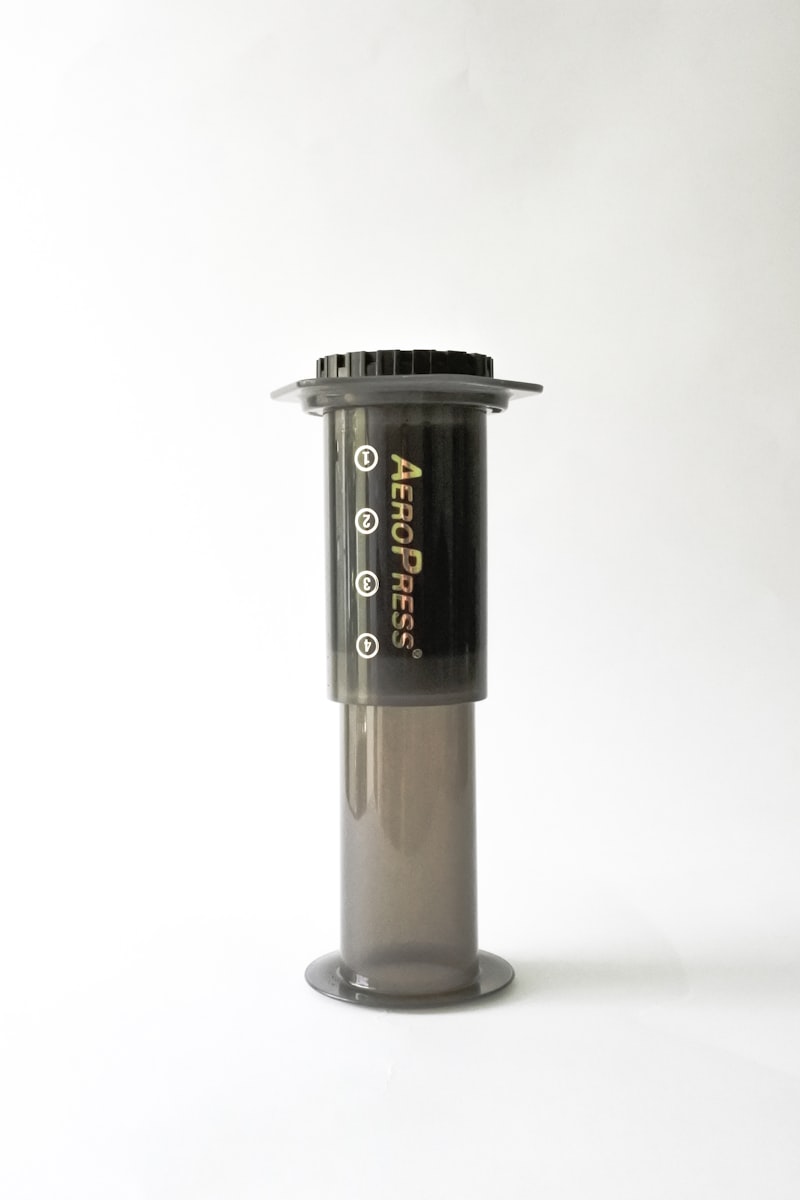Introduction:
Have you ever experienced that heart-stopping moment when you press the brake pedal, only to find your wheels locked up? It’s a terrifying situation that can occur due to various reasons, one of which is a malfunctioning master cylinder. In this article, we’ll explore how a faulty master cylinder can cause brakes to lock up and discuss the implications of this issue.
Understanding the Master Cylinder:
To comprehend why a master cylinder can lead to brake lock-up, we first need to grasp its role in your vehicle’s braking system. The master cylinder serves as the main hydraulic component responsible for transmitting the force exerted on the brake pedal to the brakes themselves. It converts the pressure from your foot into hydraulic pressure, enabling the braking system to function effectively.
Brake Fluid Pressure Buildup:
A failing or damaged master cylinder can disrupt the balance within the braking system, resulting in an excessive buildup of brake fluid pressure. When you apply the brakes, the master cylinder should release this pressure smoothly, allowing the brake calipers or wheel cylinders to engage appropriately. However, if the master cylinder fails to regulate the pressure correctly, it can cause the brakes to lock up suddenly.
Internal Seal Failure:
One common issue that can lead to brake lock-up is internal seal failure within the master cylinder. Over time, the seals can deteriorate or become damaged, leading to fluid leaks or uneven pressure distribution. As a result, the brakes may engage with excessive force, causing the wheels to lock up unexpectedly.
Contamination and Corrosion:
Contamination of the brake fluid or corrosion within the master cylinder can also contribute to brake lock-up. Moisture or debris can enter the brake system, compromising the smooth operation of the master cylinder. This can lead to erratic pressure distribution, triggering brake lock-up scenarios.
Conclusion:
A faulty master cylinder is one of the potential culprits when it comes to brakes locking up. Understanding its role and the issues that can arise from its malfunctioning is crucial for maintaining safe driving conditions. If you ever encounter such a situation, it’s essential to have your vehicle inspected by a qualified mechanic who can diagnose and address any problems with the master cylinder promptly. Remember, ensuring the proper functioning of your braking system is paramount for your safety on the road.
Automotive Safety Alert: Master Cylinder Malfunction Leads to Dangerous Brake Lock-Ups
Picture this: you’re cruising down the highway, wind in your hair and your favorite tunes playing on the radio. Suddenly, you encounter a sudden obstacle and instinctively step on the brake pedal. But what if, in that critical moment, your brakes fail to respond? A malfunctioning master cylinder can turn this nightmare into a reality – leading to dangerous brake lock-ups that put your safety at risk.
Let’s delve into the heart of your vehicle’s braking system: the master cylinder. Acting as the main control unit, the master cylinder converts the force applied to the brake pedal by your foot into hydraulic pressure. This pressure is then transmitted to the brake calipers or wheel cylinders, activating the brake pads or shoes and bringing your car to a stop. It’s like the conductor of an orchestra, coordinating the performance of all the brake components to ensure a smooth and reliable braking experience.
Unfortunately, master cylinder malfunctions can occur, jeopardizing your safety on the road. One common issue is a seal failure within the master cylinder, which can result in brake fluid leakage. When this happens, the hydraulic pressure necessary for effective braking is compromised, leading to potential brake lock-ups. Imagine driving at high speeds, only to find yourself unable to stop in time due to a faulty master cylinder. The consequences could be disastrous.
How can you spot a master cylinder malfunction before it becomes a hazard? Keep an eye out for warning signs such as a soft or spongy brake pedal, excessive pedal travel, or a brake warning light illuminated on your dashboard. If you experience any of these symptoms, it’s crucial to have your vehicle inspected by a qualified mechanic immediately. Remember, proactive maintenance and addressing issues promptly can be the difference between a safe journey and a potential disaster.
To ensure your safety and that of your passengers, regular brake system maintenance is paramount. Schedule routine inspections with a trusted mechanic who will check the condition of your master cylinder, brake lines, and fluid levels. By catching potential problems early on, you can prevent brake lock-ups and other dangerous situations on the road.
Breaking News: Investigation Reveals Master Cylinder Defect Behind Recent Brake Failures
Have you ever experienced that heart-pounding moment when you step on the brakes, only to find your car’s response lacking? It’s a nerve-wracking situation that no driver wants to face. Well, hold onto your seats because recent investigations have uncovered a shocking revelation: a master cylinder defect is the culprit behind these unnerving brake failures.

Picture this: you’re cruising down the highway, enjoying your drive, when suddenly you need to make an emergency stop. You rely on your brakes to swiftly bring you to a halt, but instead, you’re met with a delayed and ineffective response. It’s a terrifying scenario, one where lives could be at stake. This investigation sheds light on why such incidents have been occurring more frequently than we’d like.

The master cylinder, a critical component of your vehicle’s braking system, plays a vital role in converting the force of your foot on the brake pedal into hydraulic pressure that activates the brakes. However, defective master cylinders have recently been identified as the underlying cause of these brake failures. When the master cylinder malfunctions, it fails to generate sufficient hydraulic pressure, resulting in a significant reduction in braking power.
Imagine your master cylinder as the conductor of an orchestra, responsible for coordinating the precise movements of each instrument. If the conductor stumbles or loses control, the harmonious symphony transforms into a chaotic jumble of discordant notes. Similarly, a defective master cylinder disrupts the smooth operation of your brakes, leaving you vulnerable to potential accidents.

This newly discovered defect has sparked concerns among drivers and automotive experts alike. The investigation’s findings reveal that certain models from various manufacturers may be affected. As a responsible vehicle owner, it’s essential to stay informed about any recalls or safety alerts related to your specific make and model.
Unveiling the Hidden Danger: Master Cylinder Failure Blamed for Frequent Brake Lock-Ups
Have you ever experienced a sudden brake lock-up while driving? It’s a heart-stopping moment that can put your safety at risk. What many drivers don’t realize is that the culprit behind these terrifying incidents could be a malfunctioning master cylinder. Yes, that seemingly innocuous component hidden beneath the hood of your car can turn into a hidden danger.
The master cylinder plays a vital role in your vehicle’s braking system. It is responsible for generating the hydraulic pressure needed to activate the brakes when you press the pedal. When the master cylinder fails, it can lead to a loss of hydraulic pressure, resulting in brake lock-ups, where the brakes engage suddenly and stay locked, causing your wheels to skid.
So, what causes master cylinder failure? One common reason is internal seal deterioration. Over time, the seals inside the master cylinder can wear out or become damaged, leading to fluid leaks and a loss of pressure. Moisture contamination is another culprit. Moisture can accumulate in the brake fluid over time, causing corrosion within the master cylinder and compromising its performance.
Identifying master cylinder failure can be tricky, as there are often no warning signs until it’s too late. However, if you notice a spongy or sinking brake pedal, low brake fluid levels, or frequent brake lock-ups, it’s crucial to get your vehicle inspected by a qualified mechanic immediately. Ignoring these warning signs could have catastrophic consequences on the road.
Prevention is key when it comes to master cylinder failure. Regular maintenance and inspection of the braking system can help detect any potential issues early on. Flushing and replacing the brake fluid at recommended intervals can also prevent moisture buildup and prolong the lifespan of the master cylinder.
Remember, your safety should always come first. If you suspect master cylinder failure or experience frequent brake lock-ups, don’t delay in getting it checked by a professional. Being proactive can save you from harrowing moments and keep you safe behind the wheel.
Unveiling the hidden danger of master cylinder failure shines a light on an often overlooked problem that can have severe consequences. Stay vigilant, take care of your braking system, and enjoy safer journeys on the road.
Experts Warn: Faulty Master Cylinders Pose Serious Threats on the Roads
Subheading: Understanding the Dangers of Faulty Master Cylinders and Ensuring Road Safety
Are you aware that a seemingly insignificant component in your vehicle, known as the master cylinder, could potentially jeopardize your safety on the roads? Automotive experts are sounding the alarm about faulty master cylinders, highlighting the serious threats they pose to drivers and passengers alike. In this article, we will delve into the details of these dangerous components and shed light on why they demand immediate attention.
Imagine driving down a busy highway, relying on your brakes to navigate traffic. Suddenly, you find your brake pedal sinking to the floor without any response from the brakes themselves. This nightmarish scenario is precisely what can happen when a master cylinder malfunctions. Acting as the heart of the braking system, the master cylinder converts the pressure exerted on the brake pedal into hydraulic force, facilitating the stopping power of your vehicle. However, when it fails, the consequences can be catastrophic.
The risks associated with faulty master cylinders cannot be overstated. Sudden loss of braking power, reduced stopping distance, and compromised control over the vehicle are just some of the dangers that drivers may face. Such incidents can lead to devastating accidents, injuring not only the occupants of the affected vehicle but also pedestrians and others sharing the road.
To ensure your safety on the road, it is crucial to recognize the warning signs of a failing master cylinder. Look out for indicators such as a spongy or unresponsive brake pedal, low brake fluid levels, or leaks around the master cylinder. If you experience any of these issues, seek immediate professional assistance to diagnose and rectify the problem.
Regular maintenance and inspection play a significant role in preventing master cylinder failures. Timely checks by qualified technicians can identify potential issues before they escalate, mitigating the risks associated with faulty master cylinders. Remember, your safety and that of others on the road depend on your vigilance in addressing these concerns.
Faulty master cylinders present serious threats to road safety. Understanding their importance within the braking system and recognizing the warning signs of malfunction is crucial for every driver. By prioritizing regular maintenance and promptly addressing any issues, we can ensure safer journeys for everyone. Stay alert, stay vigilant, and prioritize your well-being behind the wheel.
